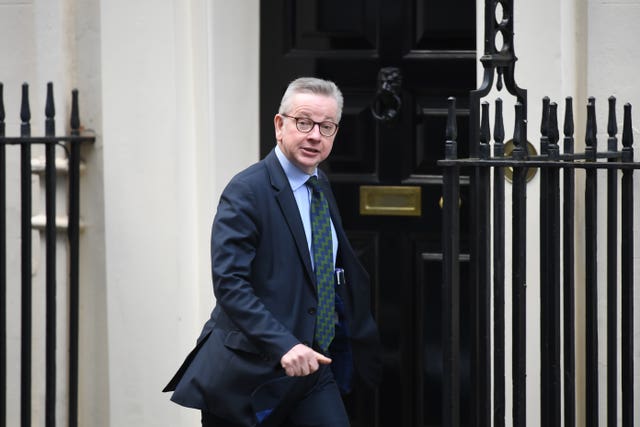Internal Market Bill could be bid to ‘erode’ Barnett formula, expert claims
Professor David Bell gave evidence on the UK Government’s proposed legislation to MSPs on Holyrood’s Finance and Constitution Committee.

Controversial new legislation proposed by the UK Government could be an attempt to erode the formula that determines funding for different parts of the UK, MSPs have heard.
Economics expert Professor David Bell told a Holyrood committee the new Internal Market Bill would give ministers in London powers to allocate spending in a “wide range” of areas in Scotland.
He claimed the UK Government could even directly fund bodies set up by Scottish ministers.
With ministers in Edinburgh having voiced concerns the Bill is a Westminster “power grab”, Prof Bell told the Scottish Parliament’s Finance and Constitution Committee new spending powers in the legislation raise “possibilities for bypassing effectively the Scottish Government”.
The University of Stirling academic said: “The powers proposed in the Bill are extremely wide in relation to financial support.
“The UK Government is now taking power effectively to spend across a wide range of different topics and deliver that money to ‘any person’, that is the phrase that is specifically used within the Bill.”
He said this proposal has been “parachuted into the debate without any previous discussion or negotiation”.
This could result in UK ministers allocating cash to areas usually funding by the Scottish Government, with concerns it might be a way of “getting round the Barnett formula”.
Prof Bell said he believes it “may still be possible” that non-departmental public bodies – which he said were like “the children of the Scottish Government” – could receive funding from the UK Government under the legislation.
“I’m thinking of bodies like Skills Development Scotland, which have received large amounts of European funding in the past,” he added.
Prof Bell told the committee: “The Barnett formula is not written in law, this may be a way of trying to erode it.”

Meanwhile, committee convener Bruce Crawford said he is “genuinely dismayed” UK Business Secretary Alok Sharma has refused to make time to give evidence to MSPs about the legislation.
It comes after an email from Mr Sharma’s office explained that “given the tight legislative timeline for the Bill, it is with regret that the SoS (Secretary of State) will be unable to attend this committee session”.
Mr Crawford said: “The UK Internal Market Bill will affect many people’s lives and livelihoods in Scotland.
“It will also have a profound impact on the devolution settlement and on the powers of the Scottish Parliament.
“The UK Government already recognises and accepts that all aspects of this Bill require the legislative consent of the Scottish Parliament.
“I am genuinely dismayed, therefore, that the Secretary of State for Business will not make time to give evidence to our committee, as we consider whether or not to recommend that consent be given to this UK Bill.”

But Cabinet Office minister Michael Gove – who has previously said the legislation will result in a “power surge” to the devolved administrations – will be available to give evidence to the committee.
The Scottish Government has already said it will not give its consent to the legislation, which recently passed its first Commons hurdle despite misgivings among some Conservatives after ministers admitted the Bill breached international law.
National Farmers’ Union (NFU) Scotland director of policy Jonathan Hall also gave evidence to the committee.
He said part of the Bill – which aims to ensure smooth trade can continue between the four nations of the UK when the Brexit transition period comes to an end – could be replaced with voluntary frameworks.
Such an approach has already been suggested by the Scottish Government and he said this could be a “better approach”.
Mr Hall told MSPs: “We have talked about common frameworks and their governance and their role in dispute resolution for at least two years now, if not three, and yet we still find ourselves here at the eleventh hour having almost the gun to the head situation of looking at a UK Internal Market Bill, when in fact if we had put the time and effort into developing common frameworks properly in the first place then the need for some elements of the UK Internal Market Bill would not be the same.”




